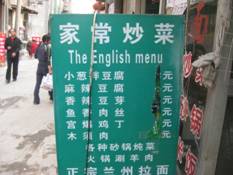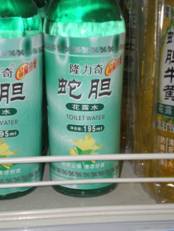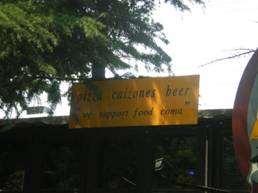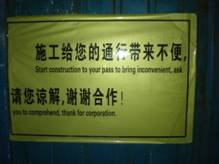In my last entry, I wrote about China through the sense of taste. However, to fully understand the country, the next obvious sense is that of sight. As the home of the Great Wall, Tiananmen Square, Mount Everest, the Terra Cotta Warriors, journaling every single abundant site makes my job complicated. However, most of the sights you can Google and envision them in their splendor and what it might feel like in person. So, I thought it would be better to show you the sights of Beijing and Xi An not included in our travel guides.
At 12,000 feet above sea level, Xi An’s altitude and increased industrial pollution restrict the lungs, dry the skin and chap the lips. The humidity and our inability to pack shorts, made hiking to the Terra Cotta Warriors, the Hot Springs and Mount Hua-Shan strenuous. As the toxic sun beamed onto our foreign skin, the women of Xi An carried parasols, reminiscent of the Antebellum South. Perhaps they had gotten the memo that fair skin is in and skin cancer is out. Mighty rivers that once fed the nation now streamed polluted sludge through Xi An, where the runoff is still used for drinking water, bathing and bathroom. Welcome to our second stop.
As you can tell, Xi An has not been my favorite stop. I had waited for many years of my childhood to see the Terra Cotta Warriors, and don’t get me wrong, they were splendid. The hike to the top of Mount Hua-Shan produced more than just amazing pictures and sore muscles; its clean air and challenges were revitalizing. But, the transition from a crowded, smoggy Beijing, to a fairly crowded and increasingly more smoggy and humid Xi An has provided its own challenges. But, enough about Xi An. Let’s get to the odd sites.
Lost in Translations
As I said in the last entry, it has been very difficult to order food because everything is in Chinese and I speak very little Chinese. Trying to order food at a KFC that uses only Chinese characters is like trying to decipher Hammurabi’s Code without the Rosetta Stone; it is just impossible. However, even when the menus or signs are in English, the translations are just as hard to decipher.
Food and Drinks
After a long day of trekking through Beijing, our group got lost in a back alleyway. Now, when the whole country seems to be a back alley, we were not worried. However, we were growing hungry, and started looking for food. We came across this sign outside of a literal hole-in-the-wall restaurant. We guessed their Internet translation missed the whole translation all together.
But, sometimes it is better just not to have a translation. This bottle of liquid, possibly recycled water, is called “toilet water.” If that is just a flavor, I pity the poor worker in charge of quality control and testing.
The worker in charge of quality control at this restaurant should ask for hazard pay. The restaurant, known for its greasy calzones and American style pizza, promises to put you in a coma. In a country whose pollution threatens early lung cancer and taxi drivers threaten paralysis, a food-induced coma is probably not on high the list of “must-dos”.
Bathroom Etiquette
The traditionally natural process of “going potty” usually needs little instruction, but the bathrooms in China apparently come with a set of instructions. In our first hotel in Beijing, a couple of the rooms had the following sign over their toilets, “Beware of Landslides”. Before you wonder how the hotel knew we would get the Beijing Belly (thanks to my culinary misadventures), it refers to the water that leaks out from the showers. Not only do the showers not work occasionally, but the plumbing is sometimes sub-par. In one restaurant, the owners had posted a sign, in English, explicitly telling the user to not do Number 2 in the restroom.
Helpful Instructions and Warnings
All in all, the Chinese know that there are many English speakers in their country and they are trying to be helpful by including warnings and instructions. But, sometimes those helpful hints are also lost in translation. While visiting the Ming Tombs, I came across a sign that read “Thunder Storm Weather. Do Not Use Mobile Phone”. I could only imagine how they realized that this was necessary to warn foreigners about potential cellular electrocution in the middle of the forest. Another sign said, “The non-staff member pleases not an operation! Thanks.” Pooling together, our study abroad group thinks it refers to someone who is not an employee changing the television or something, but the jury is still out. But, it was the next sign that needed a photo to fully understand its intricacies. Hung above a construction site, we think it asks for patience and cooperation in the construction process, but again, its translation is lost.
In recent years and especially in anticipation of the Olympics, China has attempted to qualm a few “bad habits” of its populace, including smoking. While visiting Lao Long Tou, or Large Dragon Head, every corner and possible blank wall held signs proclaiming, “You are actually polluting yourself when you are polluting,” “Be a spreader of civility; be a protector of morality” and “Abandon bad habits and embrace civilization.” I am not a smoker, nor do I condone smoking for its nasty effects on the body, but I would see these signs causing a stir in the United States. And what an ironic place to position these signs but at a site named after a fire-breathing creature. The final sign we found at the Jiaoshun section of the Great Wall in Qinhuangdao. The city is known for its greenery and roses, a nice transition from Xi An and Beijing. In protection of this status, there were signs placed in front of large grass areas and flowers saying, “Flowers are smiling and grass is sleeping, don’t disturb them.” The translation is understandable and just like the other signs, it simply made us smile.
The Great Wal(l)-Mart
All of us on the trip have been a bit homesick here and there during our travels. However, despite the language barriers and some cultural differences, Beijing looks like a bit like home. Every corner houses a KFC, Starbuck’s, McDonald’s, and Pizza Hut (called Big Pizza in China). I had Starbuck’s at the Great Wall, KFC after class one day (not the same as the United States) and McDonald’s twice when I really felt homesick and underfed. But my favorite has been Wal-Mart. At four stories high, the Beijing Wal-Mart located next to the subway station is truly a wonder across the world. With name-brand knock-offs, and floors devoted to beauty supplies, baby gear, electronics and unrecognizable food, the non-air conditioned Wal-Mart made a stark contrast to the outside vendors and peddlers. Although it was quite a walk for our group from Beihang University, it felt a little like home when we passed it on our way to the subway station.
Famous in this Country
I can’t say I have ever wondered what it is like to be David Hasselhoff in Germany, but I have thought of what it might be like if I was famous. Everyone wants to take your picture as you walk down the red carpet at a movie premier or rock out at a concert, followed by groupies. Well, change the red carpet to the Great Wall and substitute the concert for a Chinese karaoke bar. Welcome to our three-week fiasco everywhere we have traveled. Although Beijing is the capital and therefore attracts many foreign tourists, Xi An and especially Qinhuangdao do not normally have any foreigners, much less a group of sixteen very diverse college students.
Our group, comprised of three tall blondes, two Hispanics and a couple brunettes, have been chased after and endured multiple spontaneous photo sessions with ancient relics in the background and new friends in the foreground. It takes us hours to get through a room or to get down a mountain, stopping every few moments for photo sessions with people we don’t know, but who want to get to know us candidly. Old and young all want to ask personal questions, like “Where are you from?” and “How old are you?” I have gotten very good at saying “Wo shì mei guó rèn” and “Wo shì èr si yi”, but by the time I spit out those phrases, it is back to saying “Qíe zi” for the camera.
As a big group, we understand the hassles of taking photos. However, the crowds that gather do not understand this delicate dance. The groups – scratch that, swarms of followers all want to take individual photos with you even though their group contains thirty people. Then, like homesick college students to a McDonald’s, another group of thirty flocks just in time to take photos with the foreigner who has just become a smiling cardboard cutout. Then again, how could I document my trip better than through a 1,000 pictures worth a thousand-words. The first time the impromptu flashbulbs blinded us, I was at the Summer Palace in Beijing with our lone Icelander, Gutti, who stands 6’3 with bright blonde hair and blue eyes. The 4’11 Chinese women flocked to him, shoving in true Chinese form to better their position in line. With beaming smiles and peace signs, they hugged onto his legs and bumped their heads on his hips.
However, the most stunning backdrops and sporadic photo sessions occurred on our hike up Mount Hua-Shan, one of China’s most dangerous mountain ranges. Making due with my bad knees, empty stomach and sea-level lungs, I trudged up the mountain, sweat rolling down my brow as I attempted to make it past the first 100 feet. As I stopped to rest and video my first entry, I noticed a giggle gaggle of middle-aged women. Somehow their makeup was still pristine and through broken Chinese and translation help from a random gentleman, we started our daily photo session. Along the way, Nikki and I picked up a groupie following of seven Chinese businessmen, climbing the mountain on casual Friday in their Sunday best. During our four hour trek to the top, I continuously stopped to catch my breath that I had left at the bottom of the 7087 foot tall mountain. Viewing their opportunity for yet another photo, the businessmen propped up my drooping head and sat down for photos. They grabbed Nikki and another student, Brett, to add flavor to the Chinese-American dish. Reaching the third highest peak on our way to the top, Nikki and I rested, took in the view and munched on indecipherable Chinese snacks. Out of nowhere, the businessmen plopped down next to us and offered baked goods. Nikki joked that it was payment for all the photos we had taken. Ignoring our mother’s warning against taking food from strangers, we enjoyed the snack and thought about the interesting and entertaining trek up the mountain.
Next Stop: Qinhuangdao
While walking with my language partner, I tripped on the uneven cobblestone. He laughed at me while I tried to explain that the sidewalks in the United States are usually evenly paved. Again he laughed and told me that “Americans are spoiled.” Living in hotels sub par to even Motel 6, eating food that is sitting next to week old garbage, breathing air that Olympians don’t want to breathe and dodging traffic that uses stoplights as decoration has made us shiver a few times. But, if we bring nothing back from China (not possible with my spending habits or vaccinations), we have had taken in so many sights that would never been found in a travel guide. Well, except for this one.






